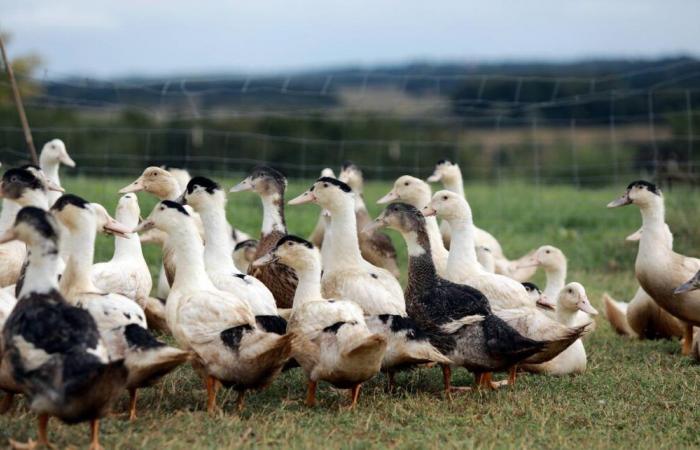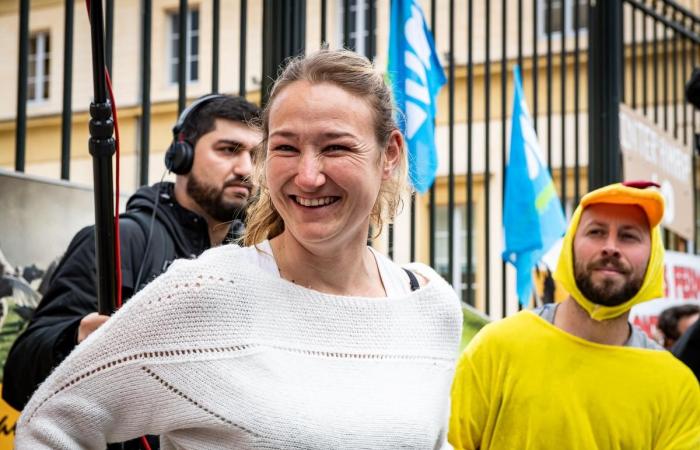De-mails and text messages. It is through these two means that the Landes Chamber of Agriculture contacted the breeders to tell them that the time to reconfine the waterflies had once again come. At the origin of this decision, a decree published in the Official Journal this Friday, November 8 raising the risk threshold linked to avian flu from “moderate” to “high”, causing the automaticity of this decision.
Farewell, then, poultry, ducks and geese frolicking in the open air in the green meadows. Not so simple. “With the mild weather and mild temperatures, it will not be easy to shelter the animals. It is a technical reality of breeding. The ducks have gotten used to being outside,” says the president of the Landes Chamber of Agriculture, Marie-Hélène Cazaubon. “It’s regulatory, it’s necessary,” she is content to say in a form of fatalism. The latter nevertheless specifies that it will be “the responsibility of each breeder: if checks are carried out by State services, everyone will have to respond”.
Marie-Hélène Cazaubon is the president of the Landes Chamber of Agriculture.
archives Thibault Toulemonde / SO
At a time when the Landes department is affected by a case of avian flu, detected in Saint-Étienne-d'Orthe on Wednesday November 6, the president, also a breeder, still hopes that “eventually, thanks to the vaccine which makes it possible to significantly reduce the spread of the virus, we can authorize breeders to leave their production in the open air on a reduced route. We hope for this, in any case. And this is how we will also measure the effectiveness of the vaccine.”
No slaughter
As for the Movement for the Defense of Family Farmers (Modef), the story is obviously different. If Mélanie Martin, the president of the union in Landes, is delighted to see that “there has been no preventive slaughter campaign” as is generally the case, she still criticizes a certain mode of production which goes towards “gigantism”. “For us, the case of Saint-Étienne-d’Orthe is a real surprise, a blow to producers,” she notes. Especially since we are in the middle of preparing for the end of year celebrations. We hope this remains an isolated case. »
archives Thibault Toulemonde / South West
Mélanie Martin is the president of Modef in Landes.
The head of Modef 40 believes that vaccination – which has been compulsory and effective for more than a year – must be accompanied by “de-densification measures”: “We must look into this question. In the example of Saint-Étienne-d'Orthe, breeding had suffered postponements of slaughter due to low consumer demand. Result: manufacturers asked to keep them longer and therefore this increased the risk of infection. » The historic debate has not yet finished generating ink.
However, consumers can rest assured that foie gras production has returned to satisfactory levels. There should therefore be some on the tables for the end of year celebrations.







